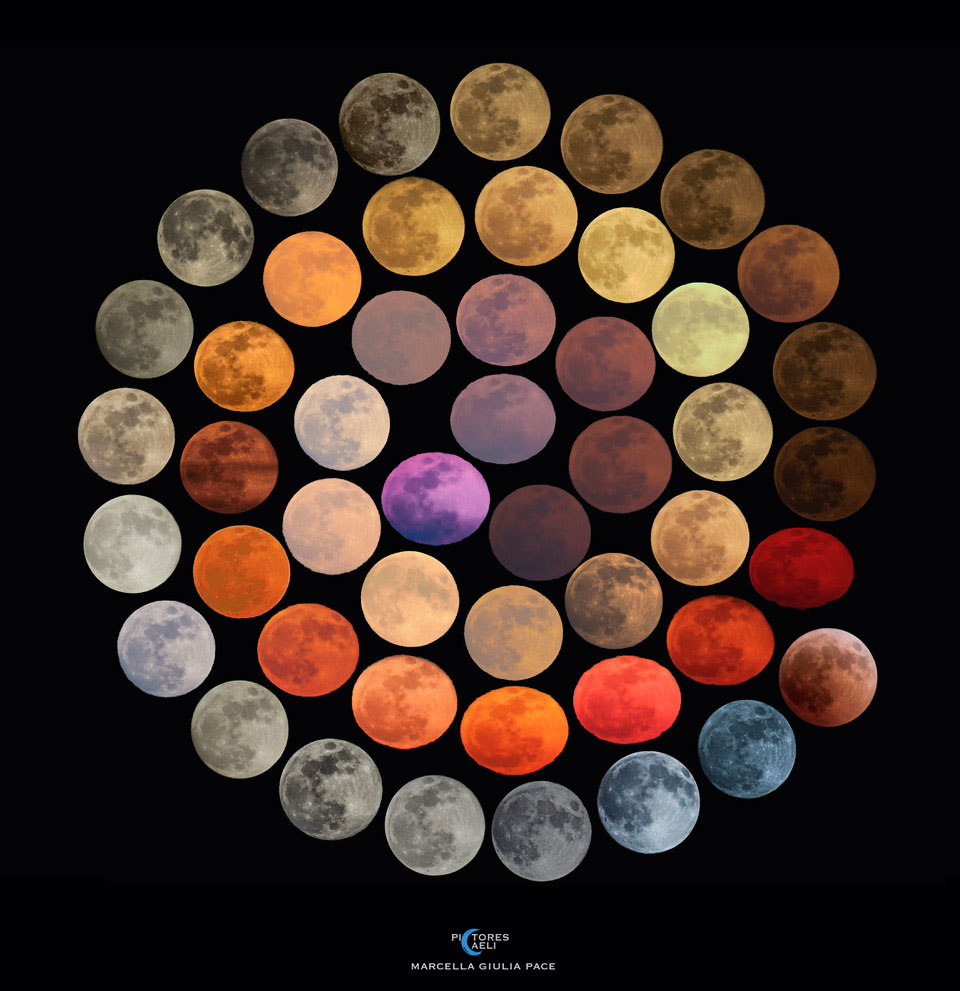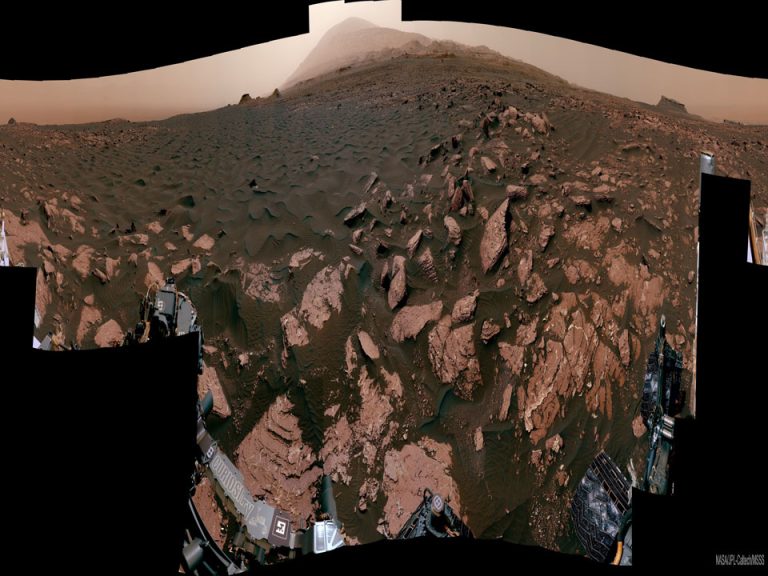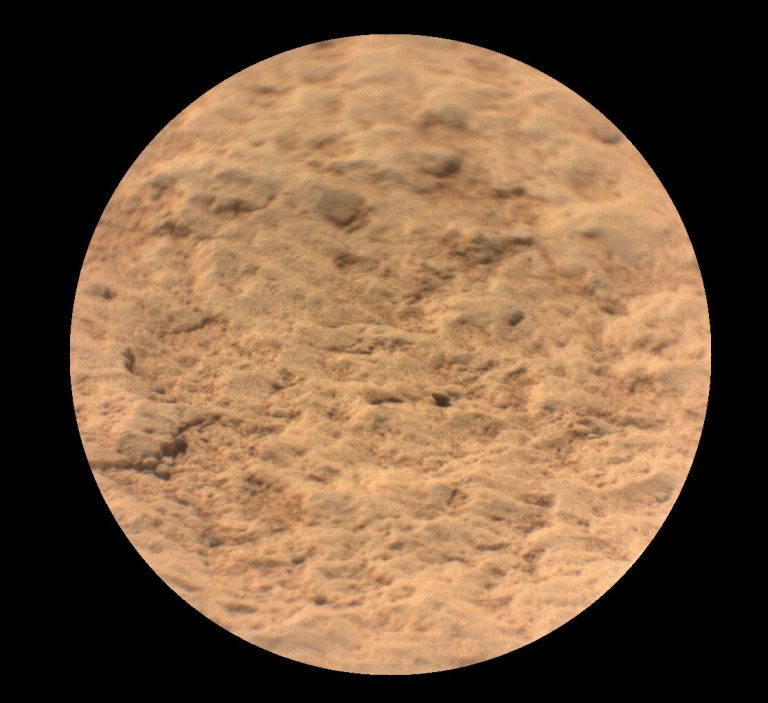2020年11月11日
Colors of the Moon
Image Credit & Copyright: Marcella Giulia Pace
Explanation: What color is the Moon? It depends on the night. Outside of the Earth’s atmosphere, the dark Moon, which shines by reflected sunlight, appears a magnificently brown-tinged gray. Viewed from inside the Earth’s atmosphere, though, the moon can appear quite different. The featured image highlights a collection of apparent colors of the full moon documented by one astrophotographer over 10 years from different locations across Italy. A red or yellow colored moon usually indicates a moon seen near the horizon. There, some of the blue light has been scattered away by a long path through the Earth’s atmosphere, sometimes laden with fine dust. A blue-colored moon is more rare and can indicate a moon seen through an atmosphere carrying larger dust particles. What created the purple moon is unclear — it may be a combination of several effects. The last image captures the total lunar eclipse of 2018 July — where the moon, in Earth’s shadow, appeared a faint red — due to light refracted through air around the Earth. The next full moon will occur at the end of this month (moon-th) and is known in some cultures as the Beaver Moon.
Tomorrow’s picture: open space
月亮的色泽
影像提供与版权: Marcella Giulia Pace
说明: 月亮是什么颜色的?这要看是那个夜晚。从地球的大气层外头看出去,靠反射阳光来绽放光芒的黝黑月亮,看起来是棕褐色的。不过,从地球大气里看出去,月亮看起来大不同。这幅主题影像,呈现一位天文摄影者在过去的10年之中,在义大利 多个地点记录的满月之色泽。当月亮的色泽泛红或泛黄时,通常代表它位在地平线附近。因为此时的月光,在通过厚重、有时富含尘埃微粒的地球大气时,蓝光会受到散射滤除。如果见到相对罕见的泛蓝月亮,代表此时大气里的尘埃颗粒较大。不过,紫月的成因目前不明,或许是数个效应共同造就的景观。最尾端一轮的满月,则是摄于2018年7月的月全食期间,当月亮滑入地球的影子里,受到被地球周围空气 折射的阳光渲染而呈古铜色。下一轮出现在这个月底的满月,有时称为河狸月。
明日的图片: open space







